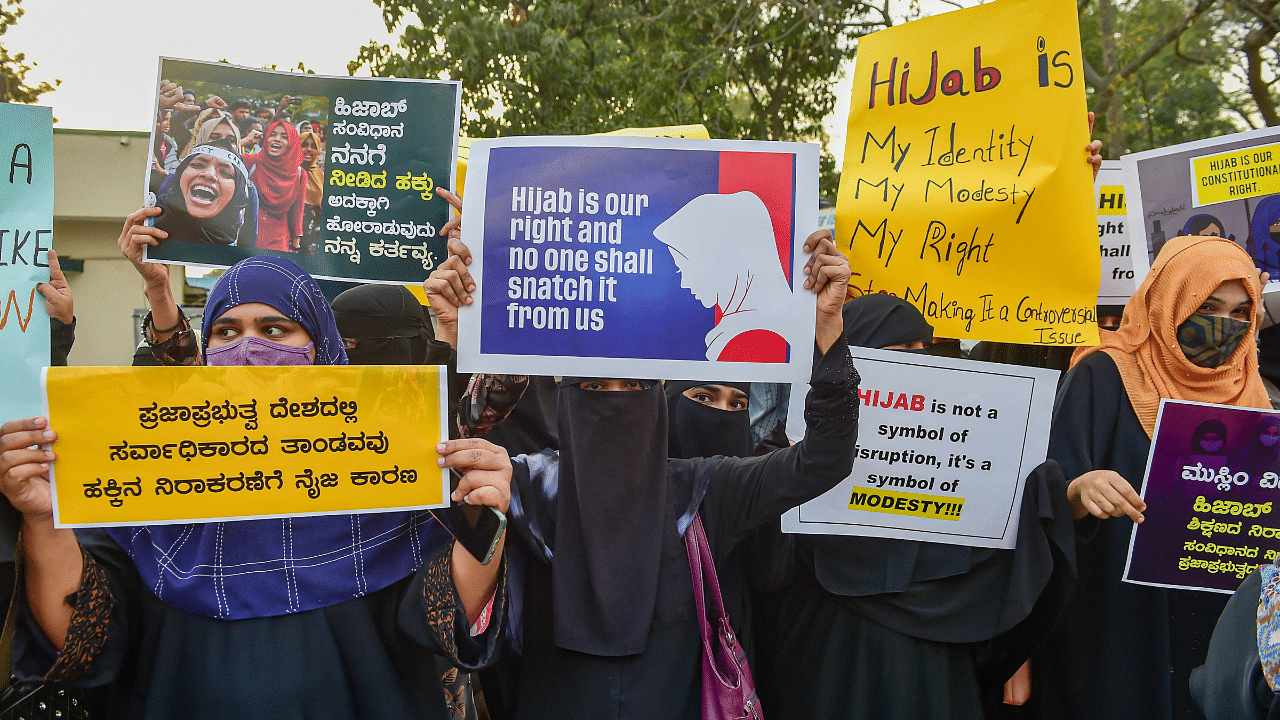
As the persisting demand of a section of students in Karnataka to allow hijab as part of the uniform is going for legal scrutiny, similar precedents in neighbouring Kerala are being widely discussed.
While the Kerala High Court in 2016 allowed the plea of a student from the Muslim community appearing for the All India Pre-Medical Entrance examination to wear hijab and full-sleeve dress while attending the exams, in 2018 the HC had dismissed a plea by two students of a private school seeking permission to wear hijab and full-sleeves as part of school uniform. In a recent development, the Kerala government too rejected the plea of a student to allow hijab and full-sleeve as part of the uniform of the Student Police Cadet project.
Thrissur native Amnah Bint Basheer, a candidate for the All India Pre-Medical Entrance Test-2016, challenged the dress code prescribed by CBSE authorities as a bid to prevent malpractice. The full-sleeve dress was also not allowed as part of the dress code.
Justice A Muhamed Mustaque took a balanced view by allowing the wearing of hijab and full-sleeves and at the same time allowing invigilators to frisk candidates by removing the hijab. The court observed that the right of women to have the choice of dress based on religious injunctions is a fundamental right protected under Article 25(1) when such prescription of dress is an essential part of the religion. The attempt of the CBSE to ensure transparency and credibility of the examinations also cannot be ignored. Women invigilators can be permitted to frisk such candidates by removing scarves. This must be done honouring the religious sentiments of the candidates, said the order.
In 2018, the same bench disallowed the plea of two girl students of a private school in Thiruvananthapuram to wear full-sleeves and headscarves as part of the school uniform. The court concluded that petitioners cannot seek the imposition of their individual rights as against the larger right of the institution. It is for the institution to decide whether the petitioners can be permitted to attend the classes with the headscarf and full-sleeve shirt. It is purely within the domain of the institution to decide on the same.
The court also observed that if the management was not given free hand to administer and manage the institution that would denude their fundamental right. The Constitutional right is not intended to protect one right by annihilating the rights of others. The Constitution, in fact, intends to assimilate those plural interests within its scheme without any conflict or in priority. However, when there is a priority of interest, individual interest must yield to the larger interest. That is the essence of liberty.
Recently, while rejecting the request of an eight-standard student seeking permission to wear a head covering scarf (hijab) and full sleeve dress as the uniform of the Students Police Cadet, the Kerala government even maintained that combining religious matters with uniforms in the present situation would raise the same demands in other similarly functioning forces, which would question the discipline and secular survival of the forces.
Watch the latest DH Videos here: